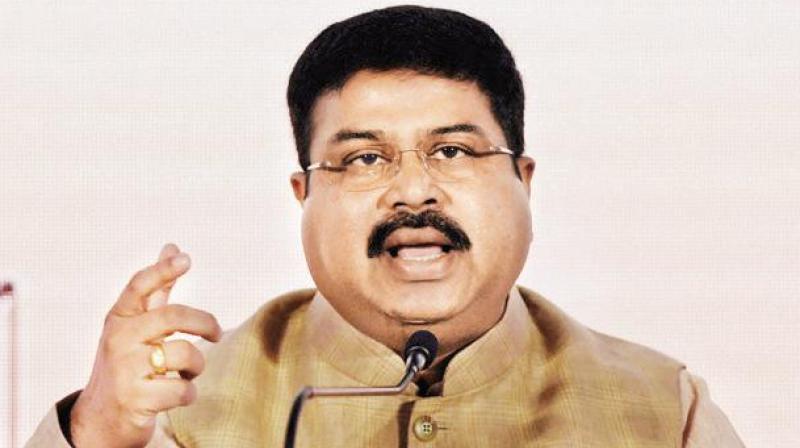Govt raises ethanol price for blending in petrol by 25 per cent
Diverting sugarcane juice for directly making ethanol, which can be doped in petrol, is common across the major sugar producing nations.

New Delhi: The government on Wednesday approved an over 25 per cent hike in the price of ethanol produced directly from sugarcane juice for blending in petrol in a bid to cut surplus sugar production and reduce oil imports.
The Cabinet Committee on Economic Affairs raised the procurement price of ethanol derived from 100 per cent sugarcane juice to Rs 59.13 per litre from the current rate of Rs 47.13, Oil Minister Dharmendra Pradhan told a news conference.
The price for ethanol produced from B-heavy molasses (also called as intermediary molasses) was hiked to Rs 52.43 a litre from the current Rs 47.13 but that for ethanol produced from C-heavy molasses was reduced marginally to Rs 43.46 from Rs 43.70.
Diverting sugarcane juice for directly making ethanol, which can be doped in petrol, is common across the major sugar producing nations. Brazil tops the list where all the ethanol produced is directly made from sugarcane juice.
The move would help sugar mills quickly release arrears of cane farmers, which stands at over Rs 13,000 crore. As much as 40 per cent of these dues are in Uttar Pradesh alone.
Ethanol so extracted would be doped in petrol to cut reliance on imports. The government is looking at scaling up the blending to 10 per cent in the next couple of years from 4-5 per cent now.
Molasses is a viscous product resulting from refining sugarcane or sugar beets into sugar.
"Oil marketing companies (OMCs) are advised to prioritise ethanol from 100 per cent sugarcane juice, B-heavy molasses / partial sugarcane juice, C-heavy molasses, and damaged food grains/other sources, in that order," he said.
Also, OMCs will pay GST and transportation charges.
Pradhan said the decision will reduce excess sugar in the country, increase liquidity with the sugar mills for settling cane farmer's dues and make higher ethanol available for Ethanol Blended Petrol (EBP) Programme.
"Remunerative price to ethanol suppliers will help in reduction of cane farmers' arrears, in the process contributing to minimising the difficulty of sugarcane farmers," he said.
The government had launched the programme EBP in 2003 on pilot basis which was subsequently extended to 21 states and four Union Territories to promote the use of alternative and environment-friendly fuels.
But the target of 10 per cent blending of ethanol in petrol was never met.
Since 2014, the government notified an administered price for ethanol. The move significantly improved the supply of ethanol during the past four years.
The ethanol procured by public sector OMCs has increased from 38 crore litres in ethanol supply year 2013-14 to estimated 140 crore litres in 2017-18.
In the 2018-19 ethanol production season, which starts from December 2018, an estimated 200-225 crore litres of ethanol is expected to be supplied by sugar factories to OMCs against a total requirement of up to 340 crore litres. One-fourth of the supplies are expected to be produced from B-heavy molasses while the rest would come from the conventional C-heavy molasses.
Pradhan said surplus sugar production has been depressing sugar prices. Consequently, sugarcane farmers' dues have increased due to the lower capability of the sugar industry to pay the farmers.
Previously, the government had allowed diversion of B-heavy molasses/sugarcane juice for production of ethanol to limit sugar production in the country.
As the ex-mill price of sugar rose from the earlier estimated price, there was a need to revise price of ethanol, he said.
Sugar mills are incurring losses as prices have fallen below production cost on account of record output of 31.5 million tonnes in the 2017-18 season as against the annual domestic demand of 25 million tonnes.

